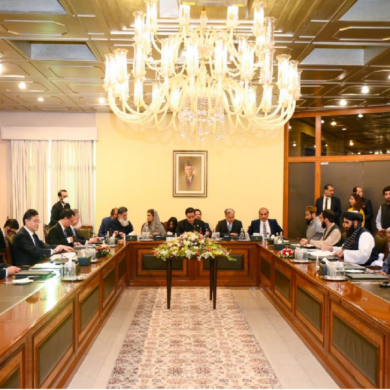The Supreme Court on Monday declared the military trials of civilians accused of involvement in the May 9 riots as null and void.
The May 9 riots erupted following the arrest of former premier Imran Khan in a graft case in the current year.
The decision came after a thorough examination by a five-member bench of the Supreme Court, headed by Justice Ijaz Ul Ahsan, and comprising Justice Munib Akhtar, Justice Yahya Afridi, Justice Sayyed Mazahar Ali Akbar Naqvi, and Justice Ayesha Malik.
The bench, after reserving its verdict, concluded that Section 2(D)(1) was in contradiction with the Constitution. Although the decision was split 4 to 1 on this specific point, the rest of the ruling was unanimous.
The court ordered that 102 accused individuals arrested under the Army Act should be tried in criminal courts, emphasizing that any trial of civilians held in military courts has been deemed invalid.
During the today’s hearing, the petitioner’s counsel informed the court about commencement of the trials of civilians in May 9 riots cases.
Attorney General of Pakistan (AGP) Mansoor Usman Awan argued in favor of military trials, explaining why a constitutional amendment was made in 2015 to establish military courts for trying terrorists.
Responding to the AGP’s arguments, the bench raised pertinent questions, challenging the applicability of the Army Act to civilians and emphasizing the importance of upholding fundamental rights as enshrined in the Constitution.
The AGP argued that applying the Army Act fulfilled the requirements of a criminal case and claimed that the 21st Amendment, which facilitated military trials for terrorists, included provisions for trying those involved in attacking restricted areas.
However, the justices, particularly Justice Ijaz Ul Ahsan and Justice Ayesha Malik, scrutinized these arguments.
Justice Ahsan questioned the applicability of the Army Act to civilians, prompting AGP Awan to emphasize that the law was meant to maintain discipline within the armed forces.
Justice Malik, invoking Article 8 of the Constitution, highlighted the importance of legislation aligning with fundamental rights and expressed concerns about leaving such provisions solely to Parliament’s discretion.
The bench reserved its verdict following these intense exchanges, signaling a careful deliberation of the complex legal arguments presented.
The May 9 violence, which occurred nationwide following Imran Khan’s arrest in a £190 million settlement case after his removal from office via a vote of no confidence in April last year, led to the arrest of hundreds of PTI workers and senior leaders.
Meanwhile, the federal government revealed that military trials of civilians had already commenced, raising further questions about the ongoing legal processes. The government’s disclosure, made in a miscellaneous application following the court’s earlier directives on August 3, revealed that 102 individuals had been taken into custody due to their alleged involvement in attacks on military installations and establishments.



